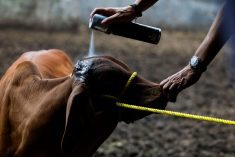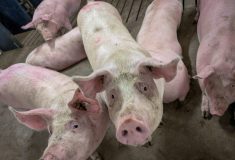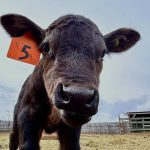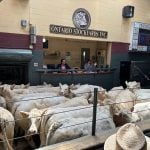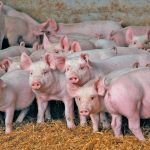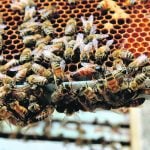Canada wants to take the United States’ revised country-of-origin labelling (COOL) regulations for a new inspection by the World Trade Organization.
Canada’s International Trade Minister Ed Fast and Agriculture Minister Gerry Ritz on Monday announced they’ve formally requested the establishment of a WTO compliance panel to judge whether the U.S. in May made the sort of changes the WTO had in mind for COOL.
“We had hoped to avoid having to again resort to the WTO to resolve this matter,” the ministers said in a statement Monday. “However, despite consistent rulings by the WTO, the U.S. government continues its unfair trade practices, which are severely damaging to Canadian industry and jobs.”
Read Also

U.S. grains: Soybeans pressured by lack of Chinese demand; corn rises on export sales
Chicago soybean futures came under pressure on Thursday on a lack of Chinese demand for the U.S. oilseed while corn futures ticked higher on strong export sales data, analysts said.
Canada’s request is to be be considered by the WTO Dispute Settlement Body (DSB) next week, on Aug. 30, according to the Canadian Cattlemen’s Association.
According to CCA president Martin Unrau on Monday, a compliance panel in this case would be composed of the original WTO DSB panel members, if they are available.
Canada, Fast and Ritz said, “considers that the U.S. has failed to bring its COOL measure into conformity with its WTO obligations. We believe that the recent amendments to the COOL measure will further hinder the ability of Canadian cattle and hog producers to freely compete in the U.S. market.”
Mandatory COOL, in force in the U.S. since 2008, was ruled out of order by the DSB in 2011 and WTO Appellate Body in 2012. Both panels found COOL to be a discriminatory practice against Canadian and Mexican livestock and meat.
Washington responded to the WTO rulings in May with revisions to its COOL rules, requiring origin designations on the labels for muscle cuts of meat to include even more specific information about where each of the production steps (born, raised, slaughtered) occurred. The revisions also remove COOL’s previous rule’s allowance for commingling of muscle cuts.
According to the CCA, a WTO compliance panel ruling in Canada’s favour on these changes would allow the federal government to seek compensation of about $1.1 billion on U.S. commodities that could be targeted for tariff retaliation.
Ottawa released its proposed list of the commodities being considered for retaliation in June.
The WTO proceeding would move forward separately from the lawsuit launched last month in Washington, D.C. by a coalition of meat and livestock organizations in the U.S., Canada and Mexico, among them the CCA and Canadian Pork Council.
That suit more recently included a filing from those organizations for a preliminary injunction to halt the revised COOL rules.
“The only outcome”
Since COOL was introduced in 2008, the CPC has estimated exports to the U.S. of Canadian hogs have fallen by 41 per cent and exports of cattle by 46 per cent, and has estimated total damages due to price declines, lost sales and added costs to the Canadian livestock sector run beyond $1 billion per year.
“We are already seeing evidence that the amended COOL regulations will increase these damages,” the CPC said in a separate statement Monday.
The CCA previously estimated its losses to COOL since 2008 at about $25 to $40 per head, or about $640 million a year, and more recently forecast USDA’s amended rule will increase the impact of COOL to about $90 to $100 per head.
The council said it “will also continue to support efforts to convince the U.S. Congress to pass legislative changes that would remove the discriminatory impact of COOL.”
The CCA said Monday its position remains that “the only outcome that would bring the U.S. into compliance with the WTO ruling of July 2012 is to amend the COOL legislation to allow either a single mandatory label for all meat produced in the U.S., or to allow for voluntary labelling.” –– AGCanada.com Network
Related stories:
Potential COOL tariff targets shortlisted, June 7, 2013
Canadian, U.S. meat industry groups take COOL to court, July 9, 2013







